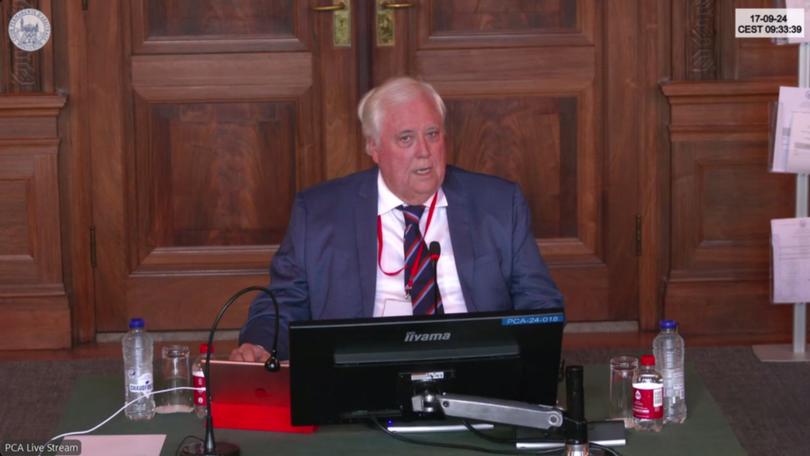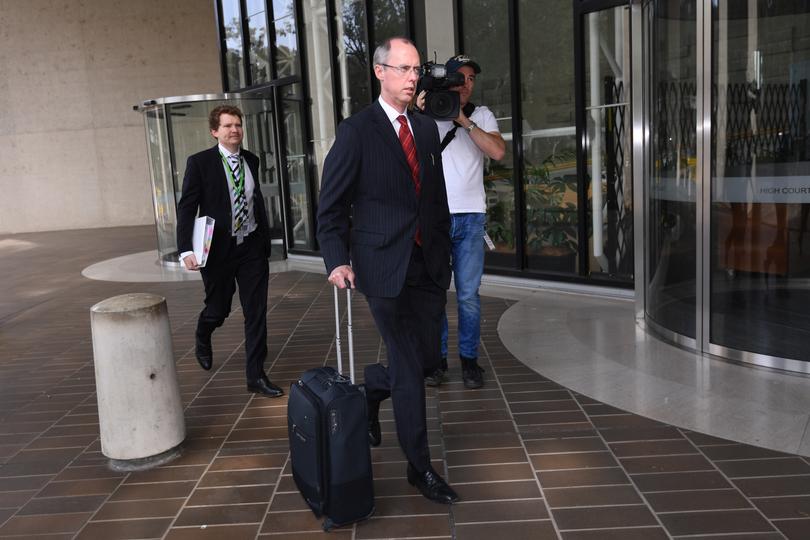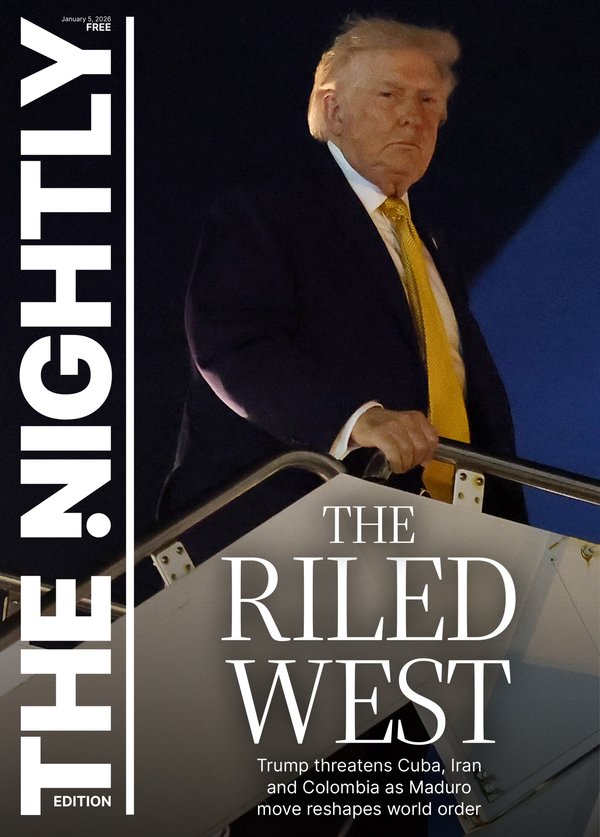The madness of mining magnate Clive Palmer and his $300 billion damages claim

For a few days this week, The Hague’s world-renowned Peace Palace became the venue for an Australian civil war.
A $300 billion battle, between the Government of Australia on one side, and one of its richest citizens — Clive Frederick Palmer — on the other.
Already an extraordinary circumstance, made even more so by the money being claimed.
Sign up to The Nightly's newsletters.
Get the first look at the digital newspaper, curated daily stories and breaking headlines delivered to your inbox.
By continuing you agree to our Terms and Privacy Policy.More than $11,200 for every man, woman and child in the country. Said to be owed to a man already personally worth, on his own estimation, more than $20 billion.
The war, for the most part, was very civil.
But at other times it was bizarre, pitting a very rich hobby litigant in direct competition with the country’s very top legal mind — Solicitor General Stephen Donaghue KC.
While a panel of three of the most experienced international arbitrators in the world watched on. Punctual, polite — but seemingly also perplexed at exactly how Australia had got them all here.

The basic answer to that was buried. First in the Balmoral South mining project, 80km southwest of Karratha.
And then in the Iron Ore Processing (Mineralogy Pty Ltd) Agreement Amendment Act, introduced and passed by the WA Government on August 13, 2020.
That law took a State agreement that WA had with Mr Palmer and Mineralogy about Balmoral South — and set fire to it.
Because of the prospect of that same agreement leading to a court order to pay Mr Palmer in the order of $30b in damages.
A financial and political apocalypse that then-WA premier Mark McGowan and current Attorney-General John Quigley simply would not countenance.
Hence the Amendment Act — drafted in secret, tabled in haste and passed within hours, which then withstood legal challenges all the way up to Australia’s High Court.
And now beyond, to the Permanent Court of Arbitration, sitting for the past 125 years to resolve disputes between different states.
Which is what Mr Palmer — the Australian citizen, former Australian MP and supposed Australian National Treasure — argued he should be classed as.
Because of his Singaporean company Zeph Investments.
The panel hearing was told that on November 30, 2018 – a day after Mr McGowan said in Parliament he might be open to changing a State agreement — Mr Palmer contacted lawyers in Singapore.
By January, Zeph had been incorporated and interposed into the highly valued Mineralogy business structure – taking over shipping and cleaning businesses on the way.
According to Mr Palmer, that was just him doing his business.
But Mr Donaghue said Mineralogy had no business in those businesses — and what he was really doing was getting himself ready – even then — for a legal challenge.
Which is against the rules of the trade treaty Mr Palmer is relying on.
With a league of Government lawyers behind him, and armed with expert evidence from professors, financiers, barristers, and investigators, it was Mr Donaghue who fronted the Federal team.
And with senior barristers, other lawyers and his wife in his corner, it was Mr Palmer who did most of the talking on behalf of himself.
“I’m not used to being accountable to anybody,” he reminded the gathered.
It was in that context, that he was confronted over a day of caustic cross-examination by Mr Donaghue.
Over why he would not be cross-examining the Government’s various experts. Over why he had not even read their evidence.
And — crucially — over why he had undertaken that complicated corporate restructure involving Singapore?
Time and again, Mr Palmer insisted it was just business – the “fun” business he had wanted to be involved in.
“I’m in business is to make money for myself and to have a good time -- I can’t see why I should just husband my money, sit in a room and continue to mine rocks all my life,” he said.
Like John Lennon said: “Your life is something that happens when you’re doing something else”.
But buried in his own legal documents, submitted to the tribunal, was something else.
A few lines which seemed to say — even admit — that one of the purposes of setting up the Singapore company was the potential for investment treaty coverage.
Mr Palmer admitted that admission was there. Admitted he had signed it himself.
And asked whether he had read that part of his response.
“That was written mainly under stress during the Olympics in Paris, with people going to the Olympics and copying it together. And we couldn’t get an extension of time,” he explained.
